If you asked Captain America to pull together a list of what he does when he’s not saving the world, it would fall short of the resume of Mark Healey.
Professional big-wave surfer, free diver, spearfisherman, conservationist, sky diver, bowhunter, yoga practitioner, photographer, filmmaker, Hollywood stuntman, shark expert, and entrepreneur, the Oahu North Shore native, husband, and father has life by the snorkel and shows no sign of slowing down.
Healey owns Healey Water Ops, a bespoke, world-class ocean-experience guide service, creating trips customized to each individual client, like flying a helicopter to a totally off-GPS location to spearfish or dive, or taking a seaplane with surfboards to a yacht that island-hops between rad surf spots that no one’s ever dropped in on before.
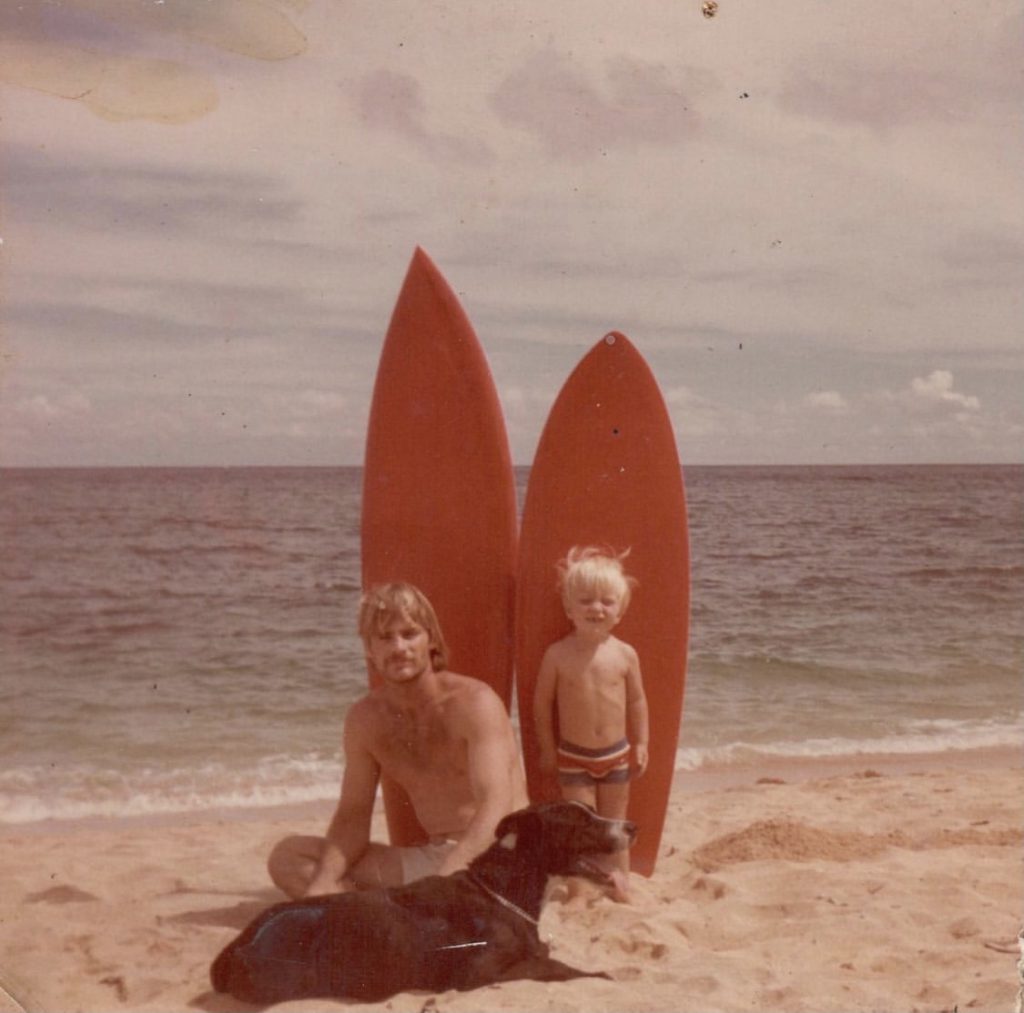
We caught up with Healey recently to discuss keeping your mind right when things go dark, human-whale evolutionary physiology, drowning honeymooners, and why traveling the world is better than college. Chances are good we’ll have a second round of Q&A with him. He’s got that much cool shit in the tank.
This interview has been edited for length and clarity.
FRA: What do you consider to be the watershed activity that opened the door for you?
MH: It’d definitely be big-wave surfing. I’ve been a professional surfer since I was 17. Surfing big waves, which is kind of like a subcategory of professional surfing. I’ve been doing that longer than I have not in my life. I’ve actually hit that tipping point.
It was the door-opener for pretty much everything. It’s not like my family had money or anything. That wasn’t going to be a leg in the door. I had to make a decision between that and going to college. So I chose professional surfing because it seemed like I was already doing what I wanted to do. I was like, Why the fuck would I go back and sit in a classroom. I’m living the lifestyle. I’m going to travel. So I traveled a lot around the world starting at 15, and meeting different characters and getting jobs, specifically in the stunt arena, like surfing, doubling jobs, and then it just goes from there. They see that you can reliably get a job done, and it kind of grows from there.
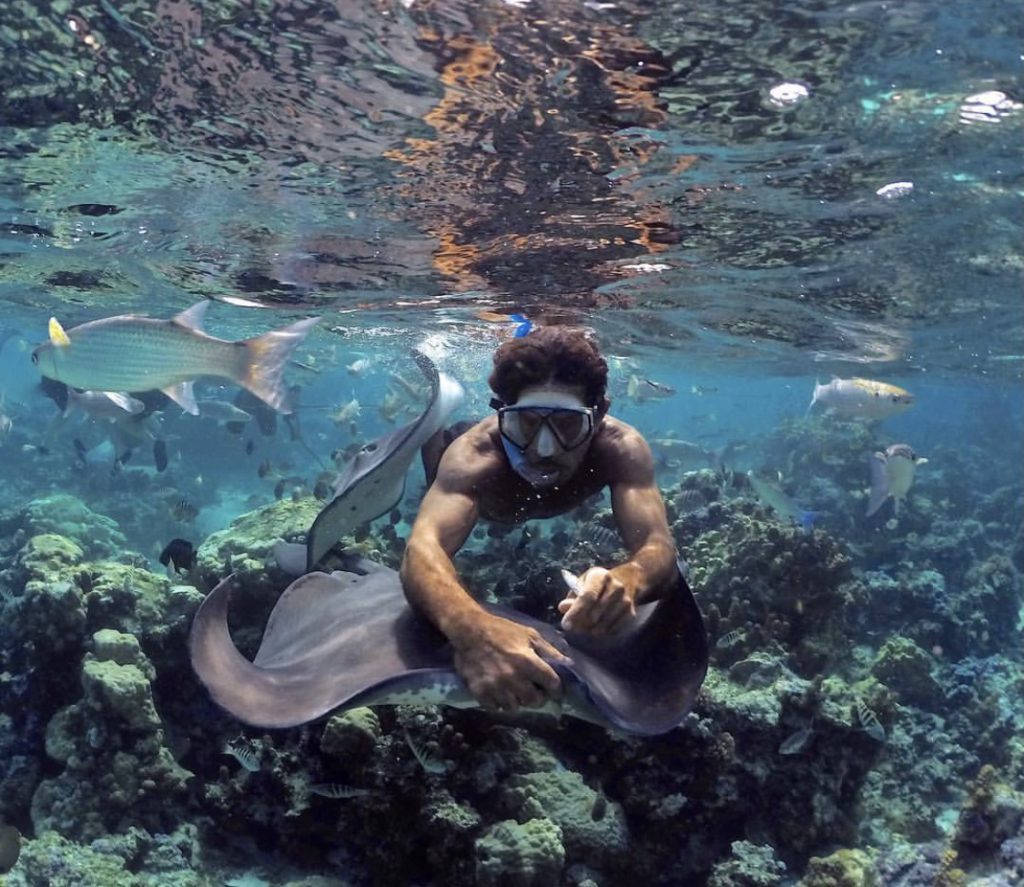
FRA: What does the ocean mean to you? What about it is so attractive?
MH: I think what’s so attractive is that it’s always new. It’s very unpredictable. It’s like a light switch, instantly being in a natural environment and essentially be having the same life experiences your ancestors did thousands of years ago. To get to that level of raw nature on land is harder. It takes effort. It’s going to take days, potentially, depending on where you live. As soon as you jump in an ocean though, you’re exposed to that, and it’s choosing your own adventure. There are real consequences. It’s a different set of laws, and I think it’s relieving. We need it because we just pack on so much bullshit with the human zoo world.
FRA: So, did you wind up going back to college, or did you skip it altogether?
MH: No, I skipped it altogether. I was starting to travel, and the first trip I got offered to go on was the trip of my dreams as a kid, which is Fiji. I was like, Well, this is happening, and I started just taking it around the world. Fast-forward 10 years and, and I’m making real money. Way more than I would ever make coming out of college and getting some job that I’m miserable at. So I was like, Yeah, odds of me going back are looking pretty slim.
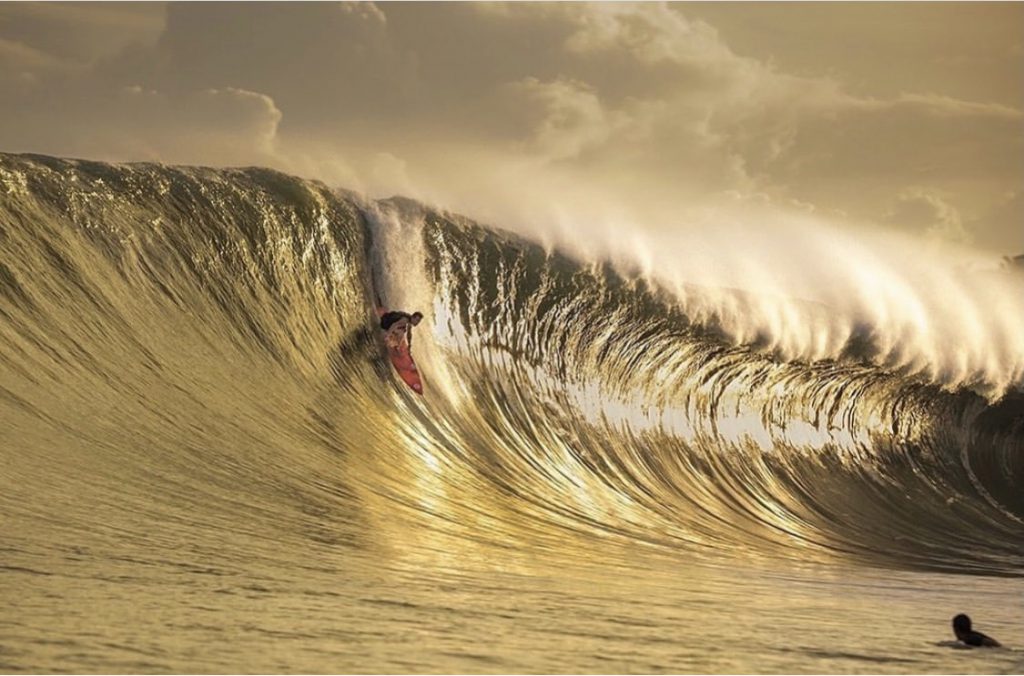
FRA: Healey Water Ops. When did you realize that this could be a viable direction for you?
MH: I had the idea since I was like 15, but I didn’t start it till about six or seven years ago. I watched that kind of world fill in around the idea the whole time I grew up in Hawaii. People are on their honeymoon, they obviously want to go to the beach, and all they get is some crappy old pair of fins and a mask, and they get drowned on their honeymoon. It just seems so dumb.
People come to Hawaii because these islands are all surrounded by beaches and ocean, and they want to have at least one touch point during their time. It’s just super underserved, especially for the customized end. So that was kind of like the spawning of it. Then, I was thinking I have one degree of connection or less to the best people in the world at any water sport, any water activity. The best safety people on earth, the best filming people on earth, and not only know the name but worked with them firsthand.
FRA: Do you find that you primarily work with people who lean more toward the expert level of things, or is this a brand new experience for them?
MH: By far, most have been introduced to something that fell in love with it. They want to figure out how to do it safely, or introduce their friends and family to it safely, and get coached to be better because most of the people are very high functioning. So, that’s usually the context. But I’ve literally never had a job with anybody, like, at a high expert level.
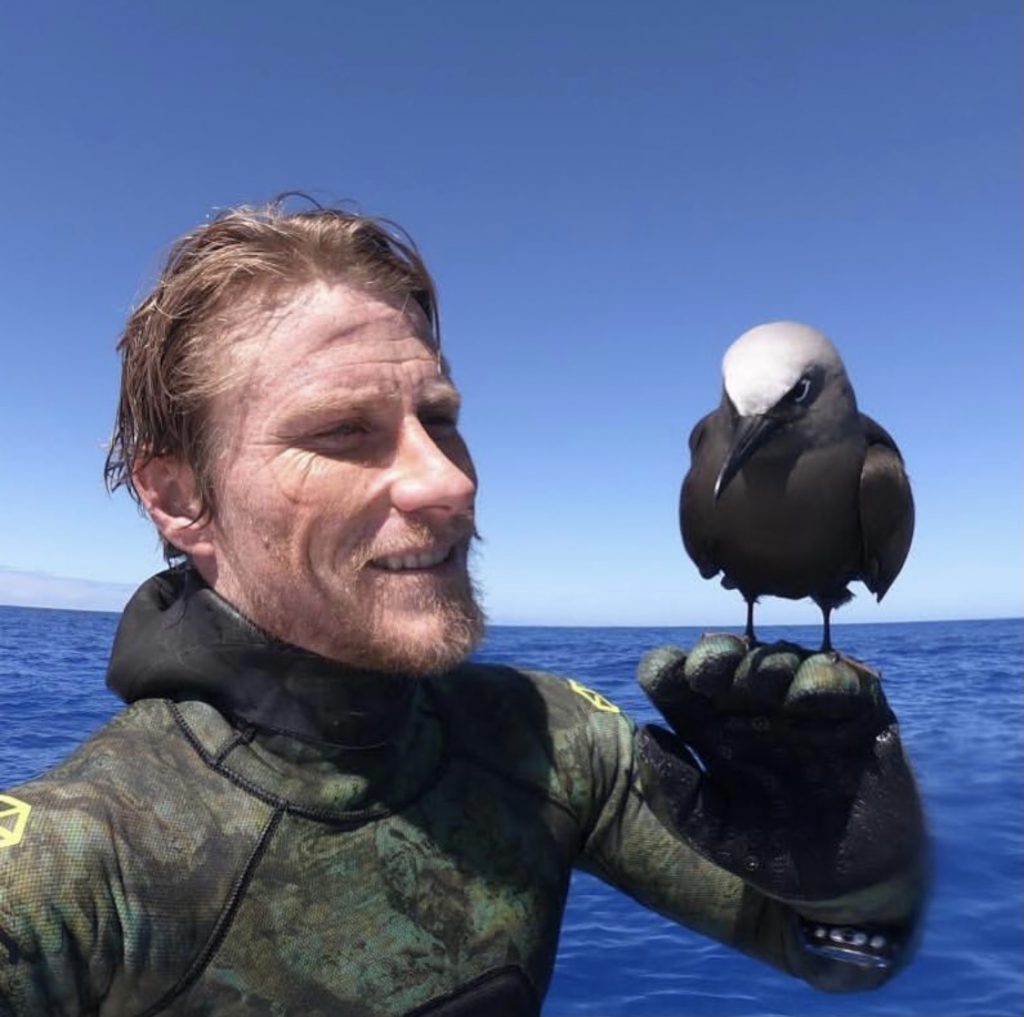
FRA: So there are no elite athletes from other disciplines who come to you to learn something that’s outside their wheelhouses?
MH: Oh, yeah. I mean, I just do that anyway. I don’t have a big desire to coach for a living, but I just try to help out good people that are trying to get better at their game, if I can offer any insight. I think the best part is just, like, the caliber of super-intelligent humans I’ve gotten to spend time around and talk to and learn from. It’s been pretty crazy.
FRA: So what else is keeping you busy? Any other projects or things going on?
MH: Yeah, definitely. So I’m a co-founder of a company called Protekt with a couple of buddies, Nick Norris, who’s a retired SEAL Team guy, and Tim Duba, who’s a retired Navy guy.
We have a range of supplements sourced in the United States that take care of your basic nutritional needs with really clean ingredients. We get away from all the gimmicky shit and fancy lab powders and all that and say, These are your essential needs to help you perform. The rest is up to you. This is not going to make you shredded overnight. We’re trying to support people who are motivated and have a realistic sense of getting to their goals.
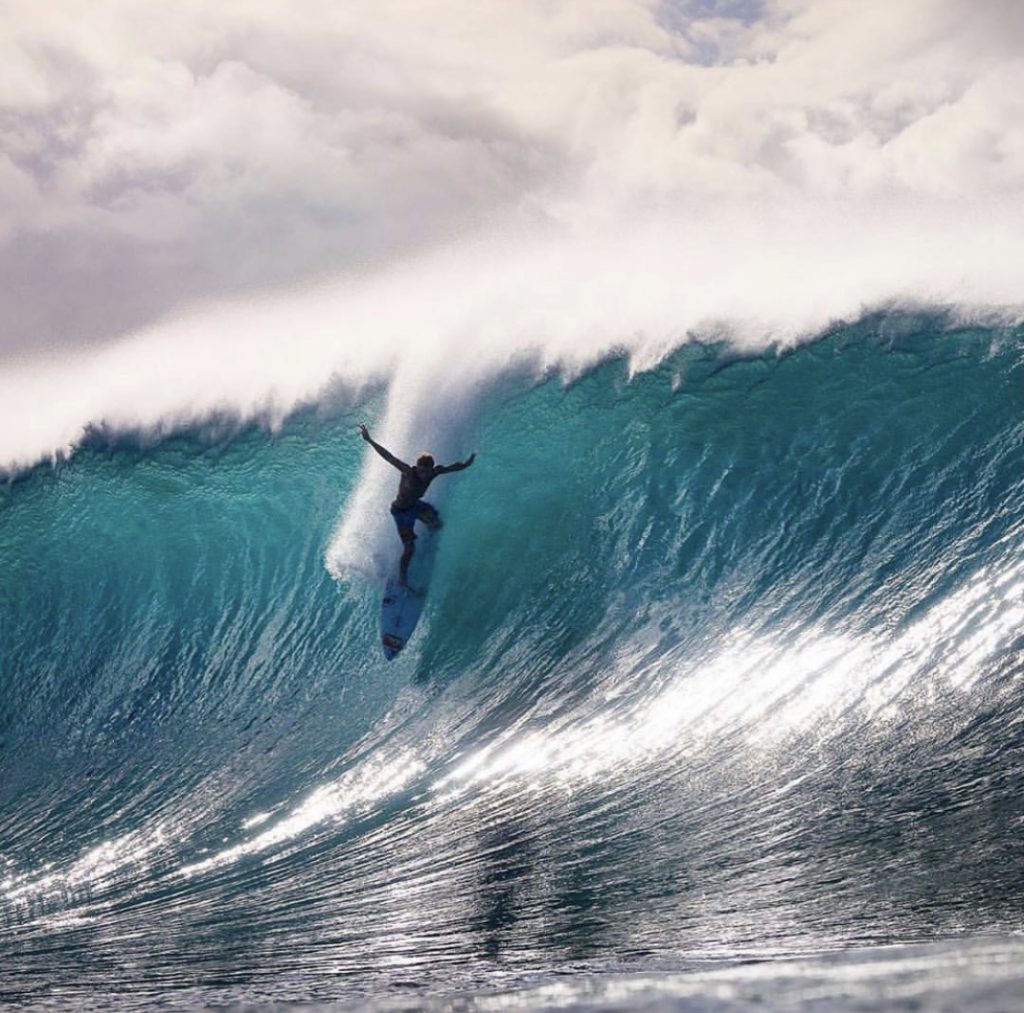
FRA: Okay. Near-death experiences. You’re on the hairy edge a lot. Have there been any times that you’ve almost gone over?
MH: Yeah, I mean, obviously drowning’s the usual suspect. I’ve only had a couple impacts when I was like, glad that was my legs. Just broke those and not my skull. Usually, it’s been from making unwise decisions. Late in the day, exhausted, dehydrated, really, really big surf, and just getting the tar beat out of you. It’s a real thing, the process of losing consciousness and the whole this-is-your-life deal.
I mean, it’s when you’re in those situations in really big surf — it’s very present and in your face how alone you are and how little control, if any, you have. You’ve got to go with it and ride it out. The only thing you can control is your mind, so you might as well be the master of it in that moment. That’s what most of my training is geared towards.
Free diving helps with this. Like, when you finally hit that point where you’ve lost control of every single thing but your mind, at least you’ve been in a lot of uncomfortable, shitty situations in a controlled environment before, and it’s not new territory to go dark.
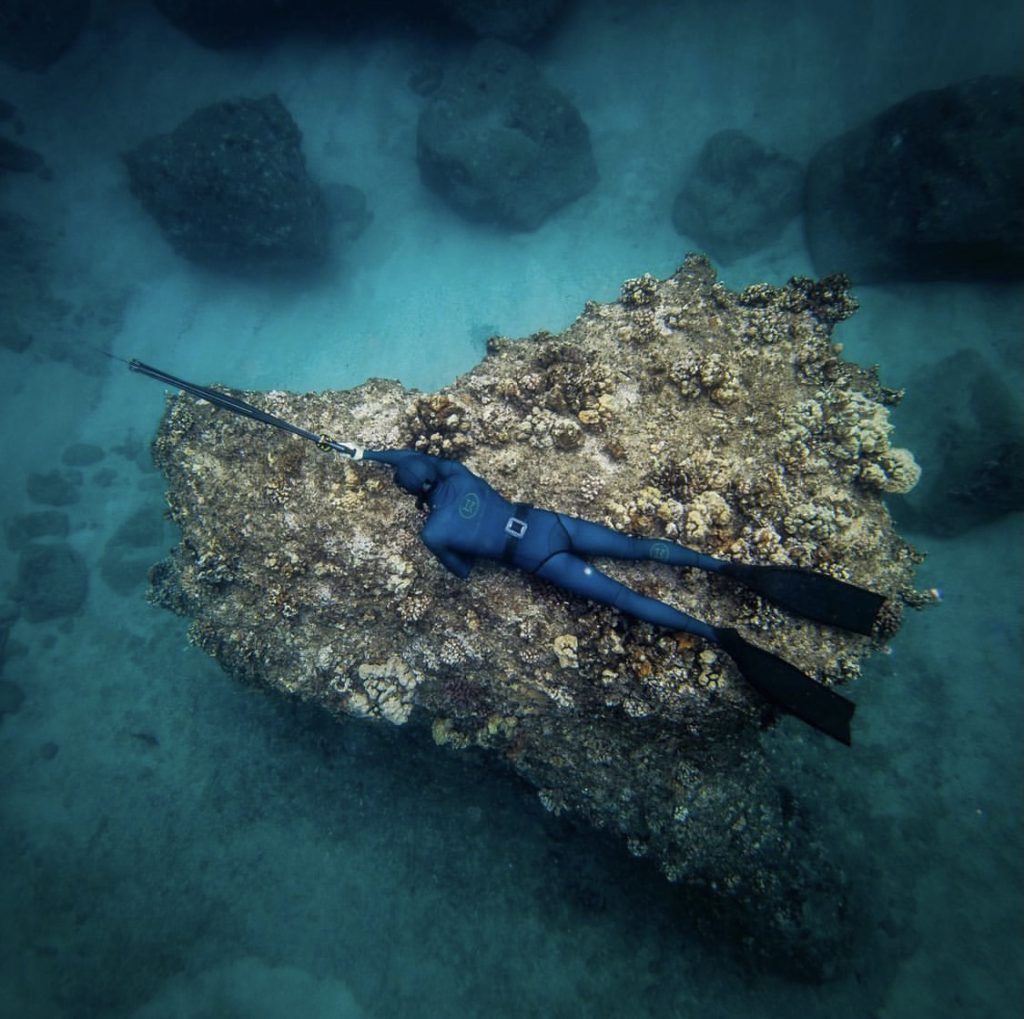
FRA: So how do you train for your mind to stay calm and to keep shit together in that situation?
MH: For me, besides physical, aerobic conditioning, I think breath-holding is really the best mental trainer I’ve found. We’ve all experienced it, where you hit that wall training, and you push past it. It’s along the lines of easy-to-access wilderness with the ocean I mentioned. It might take you days to get into a true wilderness on land; it’s the same way about this mental space. With breath-holding, you can get that wilderness anytime you want, in a very short amount of time. It’s very accessible and it’s very real.
It’s this concept of gaining control by letting go, which sounds strange, but in really fucked up situations, that’s the last thing you got. Where the more you struggle, it’s just going to lead to more energy loss and going to continue down the road of panic, which is way harder to dial back once it’s out of the bottle. So, it’s a strange way of controlling whatever part of the situation you have control over by letting go of the things that you have no control over, letting go of the extreme discomfort and fear.
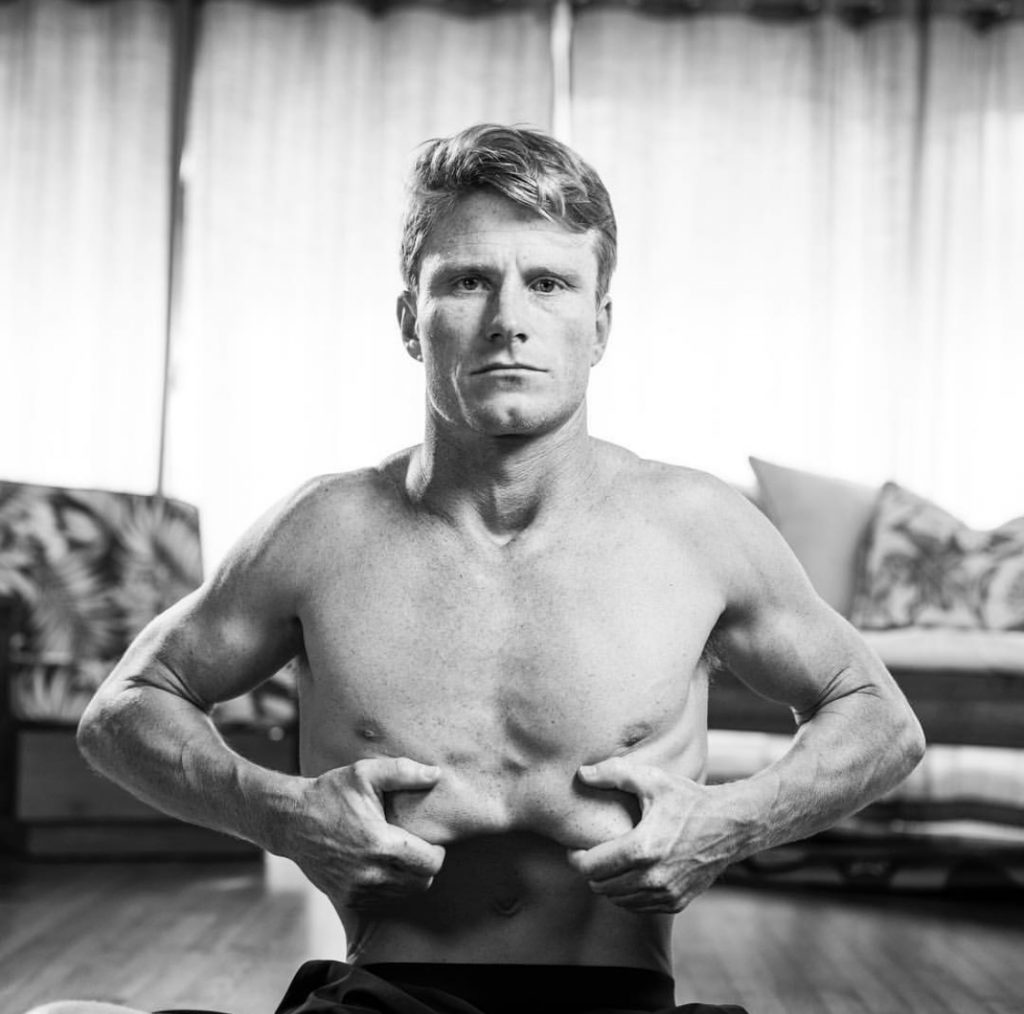
FRA: Okay, you may be able to control your mind, but you still have to hold your breath. How do you get to the point of being able to spend so long down there when free diving or rolled under a big wave?
MH: There are different exercises that you can do, like breathing tables. It depends on what your anaerobic application is. Is it going to be surviving in a big-wave situation or free-diving performance? The two circles cross over in the middle on some areas, but some things are specific to that particular category.
Basically, getting your body more lung capacity, which you’ve got to get flexibility in your chest, rib cage, and organs. Also, CO2 tolerance. Your body will adjust after a while if you’ve been exposing it to a lot of CO2. It’ll switch over faster to energy-saving mode when you’re holding your breath.
FRA: Like whales that can dive for extended periods but still come up for air.
MH: In the ’50s or ’60s they discovered that we have the same mammalian dive reflex that seals, dolphins, and whales have. We have the same mechanism. So we’re actually physiologically made for breath-holding and being underwater. But we’ve lost it because we don’t wake it up. There are all kinds of interesting things, like when they deliver babies now, they’re not spanking them on the butt — they blow on their face. A lot of times, for people who are unconscious, you want to just blow on their face. That has to do with nerve endings around your eyes and around your mouth knowing whether you’re still in liquid or not and whether it’s safe to breathe, even if you’re unconscious.
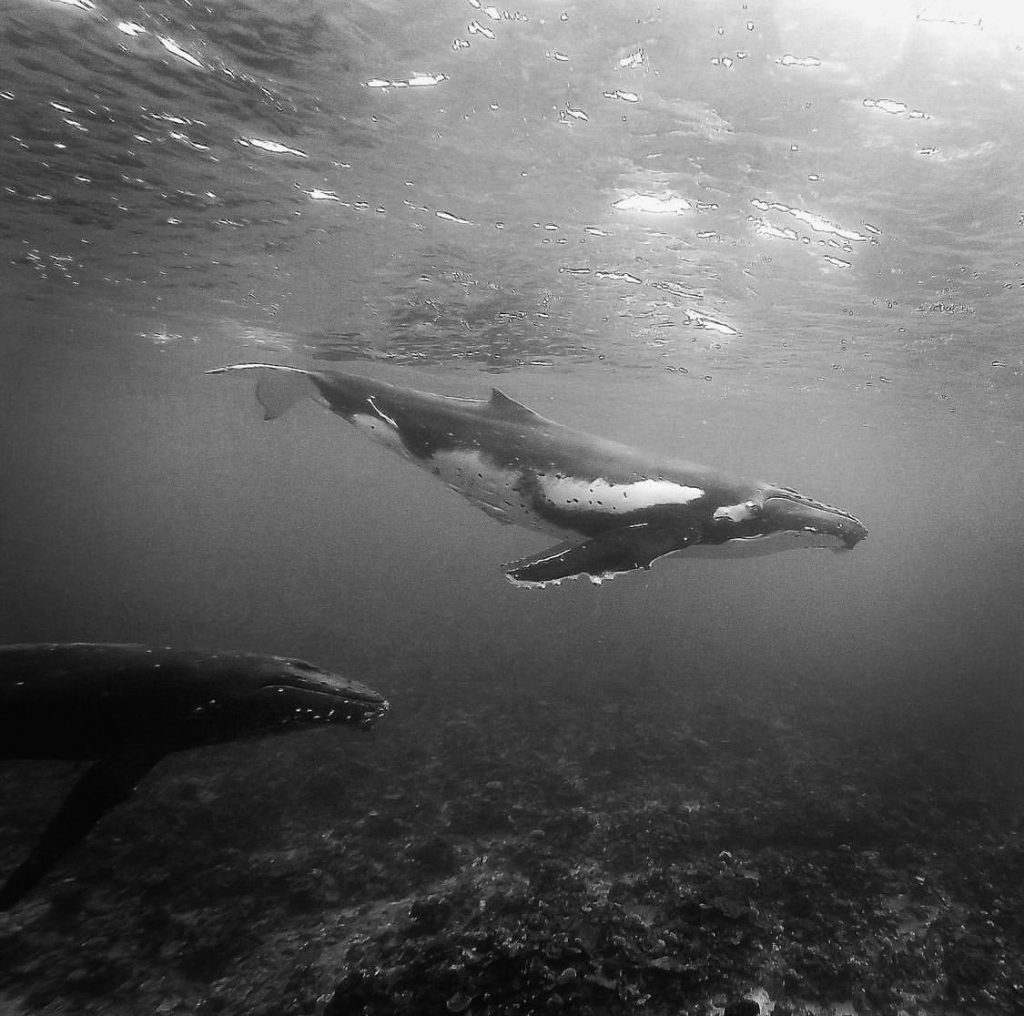
FRA: Human-whale evolutionary physiology. That’s some killer trivia-night ammo.
MH: Physiologists and the scientists back around that time were also like, Yep, a human can’t go to 30 meters. Then someone dove to 30 meters. They thought that the pressure was so intense that your rib cage would collapse. But what they realized through badass motherfuckers that were just doing it is that another thing that happens with deep-diving mammals at that pressure happens to us as well. Remember the movie The Abyss? How they put the helmet on the diver with the liquid that he breathed? Our body does that naturally before the lungs get really damaged under pressure. It creates this strange siphon effect that separates the plasma from the red blood cells and pulls that plasma into the lung cavity. Because it’s a liquid that’s non-compressible, it keeps the chest cavity from completely imploding. The suction effect of the lungs reexpanding as you come up pulls it back into your blood.
FRA: That’s nuts. Have you experienced it?
MH: Doing deeper dives during a day when I’m feeling good, and I’ve done a bunch of them, I’ll cough up a little bit of it throughout the day. So it’s happening. It’s pretty cool.
FRA: How deep have you dived, and how long can you stay underwater?
MH: Generally, I haven’t gone that deep because I’m always spearfishing. I’ve never tried to see how deep I could go, but I’ve hit the bottom at like 160 a bunch of times. The longest I’ve done on a static was 6:10, which isn’t crazy long for what humans are capable of.
FRA: 6:10 is still a long time.
MH: Yeah, there’s some suffering involved. Movement becomes an issue, too. You can tear your lungs and your trachea pretty easily once you get under all that pressure and you move around, even slightly turning your head. That’s why flexibility is so important.
FRA: I know it’s a bit of a loaded question, but what’s your favorite place that you’ve traveled to?
MH: I’m an island kid, so the South Pacific is near and dear. But I’ve always loved Fiji since the beginning. It’s still wild in a lot of places. There’s no violence. I can sneak off, but the culture’s still intact in a lot of ways because they never got booted from their land. There hasn’t been, like, a break. So you really feel like you’re in a place. When you go there, you still have to show respect. It’s not just a tourist free-for-all. I learned a lot there.
I don’t know how much time I’ve spent over there, but we used to go in to stay in remote villages, bounce out from those villages, and stay on islands for two, three weeks at a time. Just completely uninhabited in the middle of nowhere and just eat the fish. Bring some flour and tea and crackers, and the rest of it you’ve got to just figure out. I just like it. It’s still, it’s still raw. But I’ve been to so many amazing places. It’s hard to choose.
Read Next: Catching Waves on Camp Pendleton: Surfing Culture Provides Community of Strength.

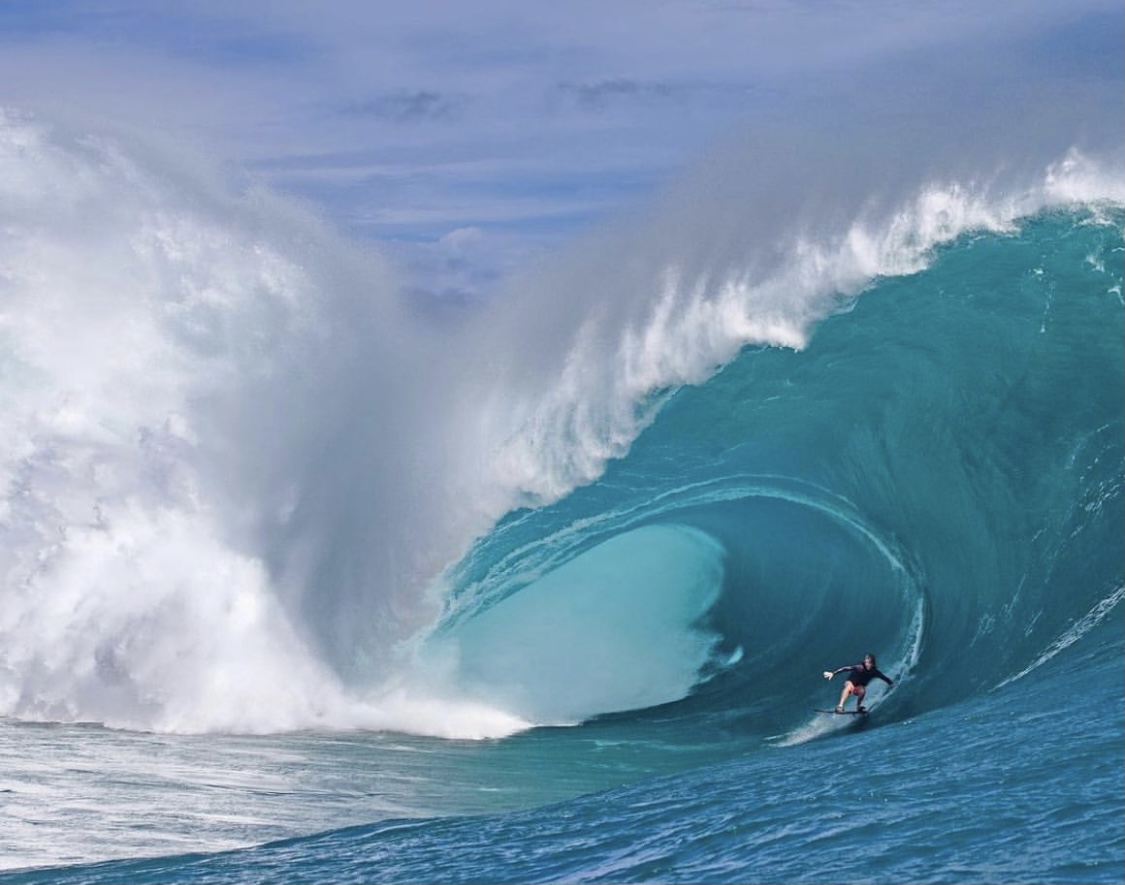
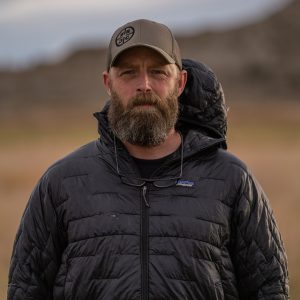
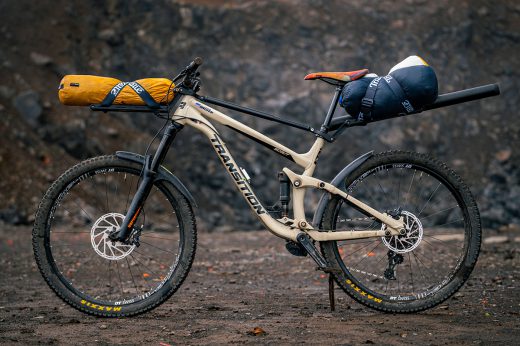
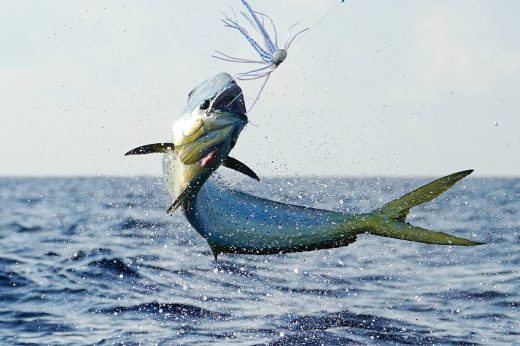
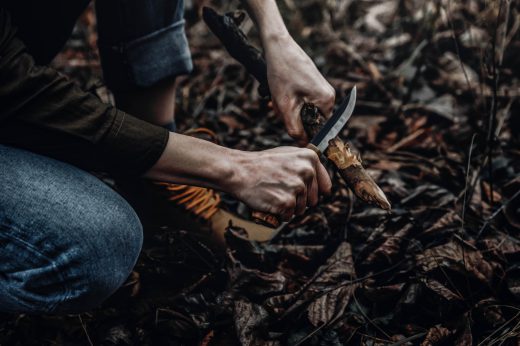


Comments